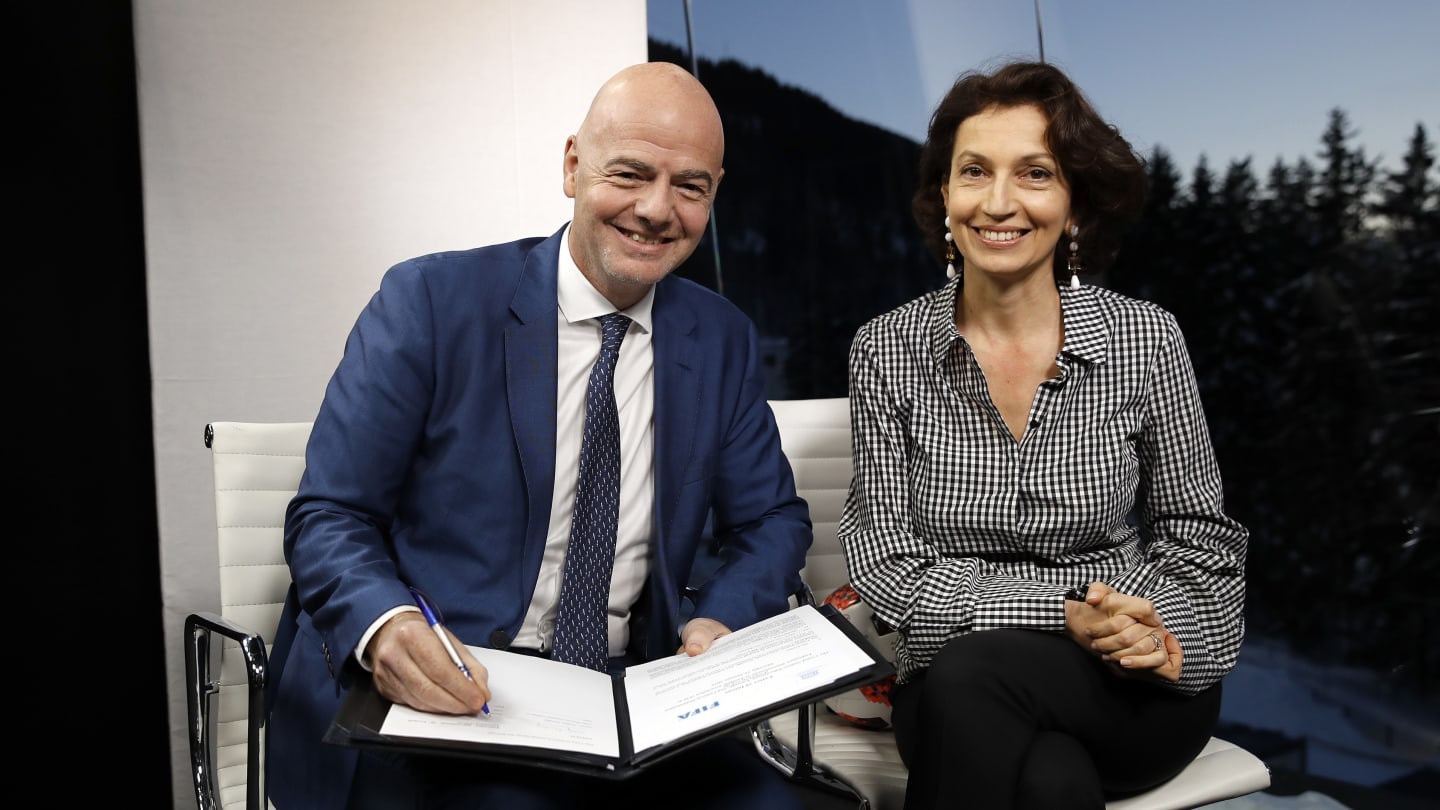
FIFA, UNESCO AND THE WORLD FOOD PROGRAMME LAUNCH “FOOTBALL FOR SCHOOLS”
February 8, 2019
Earlier this week, FIFA President Gianni Infantino, UNESCO Director-General Audrey Azoulay and UN World Food Programme Executive Director David Beasley signed a letter of intent to strengthen their collaboration in support of their common goal to enhance children’s access to sport and to promote important life skills.
The collaboration will contribute to the education, development and empowerment of children through the “Football for Schools Programme” which aims to make football more accessible to both boys and girls around the world by incorporating football activities into education curriculums.
As part of FIFA’s strategic roadmap FIFA 2.0: The Vision for the Future, the design and implementation of the programme will contribute to using the growth of football internationally to service local communities. It will provide support through tangible actions and tools, such as the provision of education and instructional materials (including apps and an online platform) for teachers to incorporate football into learning.

Through this initiative, 11 million footballs will be distributed to schools in territories of FIFA’s 211 member associations, reaching more than 700 million children, and an online platform will inform teachers on how to incorporate football into education.
In particular, the programme will benefit from FIFA’s extensive track record in technical football development, UNESCO’s long-standing experience in education and sport and the success of the WFP’s school feeding programme, which runs in more than 100 countries. School feeding helps to ensure that every child has access to education, health and nutrition by providing children with meals while in school – an important foundation for sport and physical education.
The three leaders stressed the importance of partnerships between international organisations, governments, national football associations and FIFA to enhance access to sport as well as increasing the contribution of sport – and notably football – towards achieving the United Nations Sustainable Development Goals.
Implementation of the Football for Schools Programme will begin mid-2019 with the roll-out of pilot projects in Africa, Asia and Latin America. FIFA has allocated a $100 million budget to the programme, which runs until 2022.